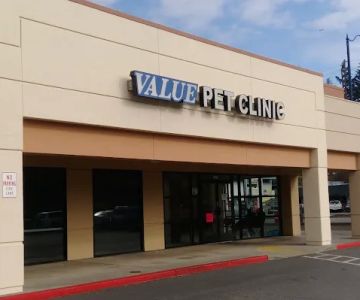How to Become a Holistic Veterinarian: A Complete Guide to Holistic Veterinary Medicine
- 1. The Education Required to Become a Holistic Veterinarian
- 2. Skills Needed for a Successful Holistic Veterinarian Career
- 3. Specialized Training and Certifications for Holistic Vets
- 4. Career Opportunities and Growth in Holistic Veterinary Medicine
Becoming a holistic veterinarian is a unique and rewarding path for those passionate about alternative medicine and animal care. Holistic veterinarians approach pet health from a whole-body perspective, focusing on natural and non-invasive treatments such as acupuncture, herbal medicine, and chiropractic care. If you’re interested in learning how to become a holistic veterinarian, this guide will walk you through the education, skills, training, and career opportunities that will help you on your journey.
1. The Education Required to Become a Holistic Veterinarian
To become a holistic veterinarian, the first step is to obtain a standard veterinary degree. This is because holistic veterinary practices are considered a specialty within the broader veterinary field. Becoming a licensed veterinarian typically requires completing a Doctor of Veterinary Medicine (DVM) program from an accredited veterinary school. These programs usually take four years to complete and involve both classroom learning and hands-on clinical training.
Basic Education and DVM Degree
Before enrolling in a veterinary school, you will need to complete a bachelor's degree in a science-related field such as biology, animal science, or chemistry. This usually takes about four years, and it’s essential to maintain a high GPA to be accepted into a veterinary program. During veterinary school, you will study subjects like animal anatomy, pathology, pharmacology, and surgery. This foundational education will give you the basic veterinary knowledge you need to pursue a holistic approach to animal health.
Advanced Education in Holistic Medicine
After earning your DVM, you can pursue additional training in holistic medicine. There are specialized programs and certifications available that focus on alternative therapies for pets. Some holistic veterinary schools offer advanced courses in acupuncture, homeopathy, chiropractic care, and herbal medicine. I personally know several veterinarians who decided to further their education in holistic practices after completing their initial veterinary degree, and they found it to be both fulfilling and rewarding.
2. Skills Needed for a Successful Holistic Veterinarian Career
In addition to formal education, holistic veterinarians need a specific set of skills to effectively care for animals using natural and alternative therapies. If you’re passionate about combining science and alternative medicine, here are some essential skills you will need to cultivate:
Strong Understanding of Animal Health
A holistic veterinarian must have an in-depth understanding of animal health, similar to conventional veterinarians. This includes knowledge of animal anatomy, disease prevention, and treatment options. However, holistic veterinarians also need to be well-versed in the body’s natural healing processes, and how to support these processes with natural remedies.
Open-Mindedness and Holistic Thinking
Holistic veterinary medicine requires an open mind and the ability to look at a pet’s health from a broader perspective. Instead of focusing solely on treating symptoms, holistic vets aim to treat the whole animal, taking into account emotional, mental, and environmental factors. I remember speaking with a holistic veterinarian who explained how they treat a pet’s digestive issues not only by prescribing medication but by considering their diet, stress levels, and overall lifestyle.
Hands-On Treatment Skills
Holistic veterinarians often use manual therapies, including acupuncture and chiropractic adjustments, which require precise hands-on skills. These therapies can be incredibly effective in treating pain, mobility issues, and stress in animals. Having the ability to apply these treatments properly takes practice and training, but it’s a rewarding part of the job for many holistic veterinarians. I’ve seen firsthand how acupuncture helped a dog recover from joint pain and return to its normal activity levels.
3. Specialized Training and Certifications for Holistic Vets
Once you have completed your DVM and gained some experience in conventional veterinary medicine, the next step is to pursue specialized training in holistic practices. There are a number of reputable certification programs that focus on alternative veterinary medicine. Some of the most well-known certifications for holistic veterinarians include:
Certified Veterinary Acupuncturist (CVA)
The certification in veterinary acupuncture is one of the most sought-after credentials in holistic veterinary medicine. Offered by the International Veterinary Acupuncture Society (IVAS), this certification teaches you how to use acupuncture as a treatment for various conditions, including pain management, digestive issues, and stress. It involves both classroom education and hands-on training.
Certified Veterinary Chiropractor (CVC)
Another popular certification is veterinary chiropractic care. This program, offered by organizations like the American Veterinary Chiropractic Association (AVCA), teaches veterinarians how to perform spinal adjustments and provide musculoskeletal care for animals. Many holistic vets pursue this certification to offer a more well-rounded approach to pain management and mobility issues.
Herbal Medicine and Homeopathy Certifications
For those interested in herbal and homeopathic remedies, there are specific certifications available through schools like the Chi Institute of Chinese Medicine. These courses teach holistic veterinarians how to use natural herbs and homeopathic remedies to treat common ailments in pets. I’ve heard from several veterinarians who found these certifications incredibly helpful in treating pets in a way that aligns with their natural healing processes.
4. Career Opportunities and Growth in Holistic Veterinary Medicine
The demand for holistic veterinarians has grown significantly over the years, as more pet owners seek alternative treatments for their animals. Holistic veterinarians can work in private practice, animal hospitals, or even start their own clinics. There are also opportunities to work with holistic pet care companies, animal shelters, and research organizations focused on natural remedies for animals.
Private Practice and Specialization
Many holistic veterinarians choose to open their own practices, where they offer a range of services, including acupuncture, chiropractic care, and herbal medicine. This allows them to build a client base and offer a personalized approach to animal care. I know of several holistic veterinarians who have built thriving businesses by combining traditional veterinary care with alternative therapies, offering a unique experience for pet owners.
Career Growth and Networking
As holistic veterinary medicine continues to grow, there are also more opportunities for networking, continued education, and collaboration. Many holistic veterinarians attend conferences, seminars, and workshops to stay up-to-date on the latest research and treatments in the field. Additionally, many holistic vets collaborate with traditional veterinarians to offer comprehensive care for animals.
Becoming a holistic veterinarian requires a combination of formal education, specialized training, and hands-on experience. If you’re passionate about natural healing methods and helping animals, this career path offers many rewards. Whether you’re just starting out or looking to expand your practice, the field of holistic veterinary medicine is full of potential and exciting opportunities. Start your journey today by exploring training programs and certifications that will help you become a holistic veterinarian and offer alternative therapies to improve the health and well-being of animals.











